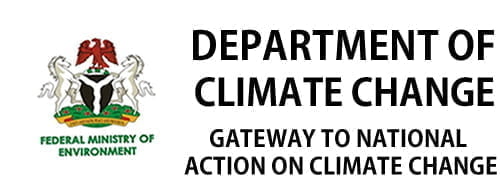Nigeria says it is committed to transparent reporting of information on the National Green House Gas (GHG) Inventory, the accounting approaches selected and the indicators used for tracking progress in implementing and achieving it’s Nationally Determined Contributions.
Minister of Environment, Barr. Mohammed Abdullahi stated this in his keynote address at a two-day Stakeholders’ Workshop on Developing Nigeria’s First Biennial Transparency Report (BTR1) and Combined Second Biennial Transparency Report/Fourth National Communication (BTR2/NC4) to the UNFCCC held in Abuja recently.
The workshop organized by the Department of Climate Change, Federal Ministry of Environment, was supported by development partners, Global Environment Facility and the United Nations Development Programme (GEF-UNDP).
The Minister represented by his Special Assistant, Technical, Mrs Halima Bawa-Bwari said Nigeria is highly vulnerable to the impacts of climate change and its phenomena manifest from rising sea levels, inundation of coastal lands by sea water and flooding with adverse impacts on food security, human health and settlements resulting in increased loss of lives and livelihoods.
He said the BTR1 will provide the first set of information of Nigeria’s efforts on the implementation of it’s revised NDC targets, while the combined BTR2/NC4 report will provide a more advanced assessment, an updated situation of an additional 2 years on Nigeria’s Climate Change efforts and progress on achievements of its updated NDC targets.
“Both reports are important for tracking national progress towards the country meeting its commitment to the Paris Agreement,” he stated.
“This workshop will outline the project objectives, components, outputs, and activities as well as the role and responsibilities of all stakeholders present for the smooth implementation of the project.
“The BTR1 and BTR2/NC4 reports will demonstrate the significant progress made by our country in addressing climate change. They highlight our efforts to reduce greenhouse gas emissions, implement mitigation measures, and enhance our capacity to adapt to the impacts of climate change. They also show our commitment to transparency and accountability by providing accurate and timely information to the UNFCCC.
In a welcome address, Director Overseeing Office of Permanent Secretary of the ministry, Mr. Charles Ikeah, said the BTR1 and BTR2/NC4 reports are critical components of commitment to the United Nations Framework Convention on Climate Change (UNFCCC).
The Director Overseeing represented by the Director, DCC, Dr. Iniobong Abiola-Awe said “These reports will provide valuable information on our progress towards achieving our Nationally Determined Contribution (NDC)and other climate-related goals.
“The formulation of BTR1 and BTR2/NC4 reports will be instrumental in helping us understand the impact of our actions on the environment and on our communities. Since the BTR process is designed as learning by doing, any gap identified will ultimately provide us with insights on how we can further enhance our efforts to address climate change.
The workshop was attended by representatives of ministries, department, agencies, NGOs and other critical stakeholders.
credit: authorityngr

